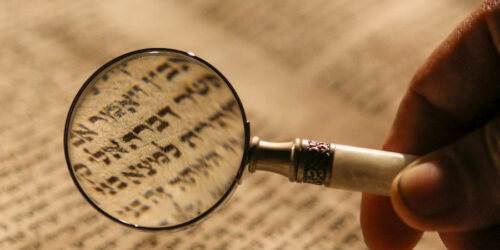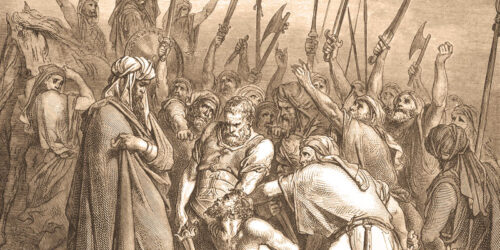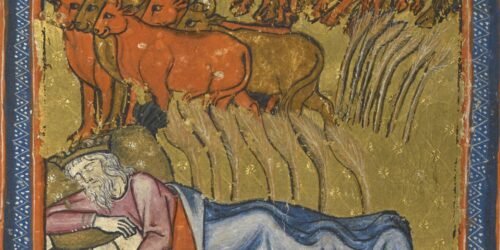“When I (Jacob) lie down with my ancestors, take me up from Egypt and bury me in their burial place.” He (Joseph) replied, “I will do as you have spoken.” And he said, “Swear to me.” And he swore to him. Then Israel bowed at the head of the bed.
47:30 – 31
Do not even bury me (temporarily) in a coffin. Jacob reasoned that if he allowed himself to be interred temporarily, Joseph would never be allowed to take his remains to the land of Canaan at a later date. They would argue that the honor done to him and the burial in the soil of Egypt was adequate as it had been for the most outstanding kings.
Sforno (16th Century)
Jacob did not want to be buried in Egypt in order that the Egyptians should not deify him after his death. He was afraid that just as the people worshipping idols are punished so are the objects of their worship…He asked to be buried in the land of Israel…because the nature of the land helps those buried there to obtain atonement for their sins…Eretz Yisrael is the gateway to heaven, the place whence all the prayers of the Jewish people ascend to heaven…There is a tradition that certain highly spiritual people enter heaven from there without the need for their souls to take painful spiritual detours.
Rabbeinu Bachya (13th Century)
Joseph replied to his father that it was better for him not to swear but rather to carry out his obligations as part of his filial duty. It was better for him to do it out of his own free will, rather than be bound on oath. In the latter instance, he could not take the credit for fulfilling his obligations freely.
Malbim (19th Century)
There is a pathos in Jacob’s insistence on an oath from Joseph, and in his bowing to his son at the end of the interview…Among the losses of old age is the loss of power…but with only words at his disposal, he will use every verbal convention, making Joseph swear acquiescence, to realize his will…(Rashi relates that Pharaoh was loathe to allow Joseph to break the oath, for then he would break his oath to Egypt)…an oath is easily broken, but with it collapses the whole delicate tissue of transactions and commitments on which society stands…By making his royal son swear to bury him in Canaan, Jacob evokes the equivocal authority of words to shape reality
Aviva Zornberg (Contemporary)
All Joseph’s praiseworthiness consisted of the great respect he paid to his father, yet he did not go in to see him every hour? For were it not for the fact that others came to tell him, “Father is sick,” wouldn’t he have known? The purpose of this, however, is to make known to you his righteousness, that he did not want to be alone with his father that he should not say to him, “What did your brothers do to you?” and he (Jacob) would be prompted to curse them. For this reason he did not visit his father at frequent intervals.
Pesikta Rabbati (6th Century)







